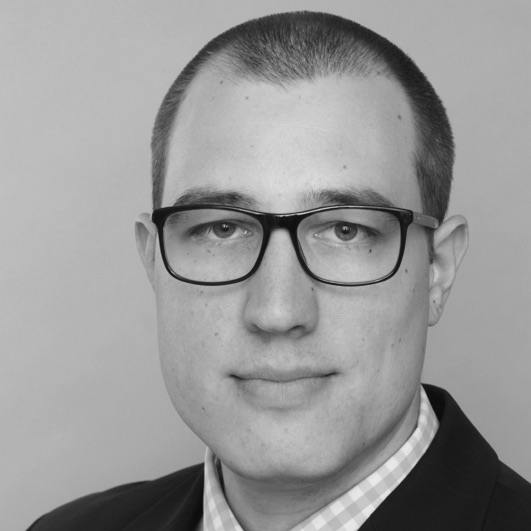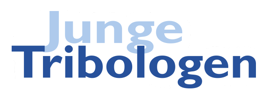Interview with Torben

What’s your name?
Torben Terwey
What are your hobbies?
I used to play American Football until I had a knee injury. So my sporting activity is currently limited to going to gym, swimming and jogging. Apart from that I am engaged in politics on the municipal and federal level and am dealing with various – also non-technical – issues. Nevertheless, I try to combine my technical background with politics, which actually works quite well. For example, I am a member of a party internal committee for questions on higher education, science and innovation. I am furthermore interested in economic questions, why I study economics on part-time basis.
What did you study and what is your highest educational attainment?
After completing my vocational training as industrial mechanic I worked for some time as a mechanic in the maintenance department of a medium-sized company in my hometown Marienheide (near Cologne). At the same time, I attended an evening school to acquire the Abitur. After finishing the school, I went to the RWTH Aachen University and started studying mechanical engineering with specialization in design (B.Sc.), simulation and material sciences (M.Sc.). I wrote my Bachelor thesis at Cerobear GmbH in Herzogenrath, a company producing ceramic rolling bearings. In my Master thesis I dealt with the simulation of wear in tribological contacts. Afterwards I continued my work at the Institute of Machine Design and Tribology at the Leibniz University Hannover. I worked on a publicly funded research project dealing with fluid friction in tribosystems. In my PhD thesis I extended these models into the field of mixed lubrication.
Where do you work and what’s your position?
During my time at the institute I was leader of the rolling bearings team and deputy chief engineer. Today I am working at thyssenkrupp rothe erde Germany GmbH in Lippstadt as project manager in the engineering department. The focus of my work is on large-diameter bearings for wind energy applications.
Since when are you part of working group “Young Tribologists“?
During my first visit of the GfT symposium in Goettingen in 2015 I met the Young Tribologists and became a member of the working group.
In which part of the group are you currently participating?
For a while I was part of the website group, currently I coordinate the international group.
Why are you a member of working group “Young Tribologists”?
There are several reasons, why I joined the Young Tribologists and why I have remained a member. First of all, it is just a nice bunch of interesting people and it’s fun to spend time with them – during the annual GfT symposium or on various other Young Tribologists activities. Furthermore, it is very enriching to learn something outside of my own specific work. Tribology is a broad science, and the specializations of our working group members differ a lot. But at the end, the main tribological mechanisms often seem to be the same, such that problems and issues are not so far away from each other. Finally, having and cultivating a professional network is also a big plus of being a member of this group.
How did you end up in the field of tribology?
During my work in the maintenance department I often worked with rolling bearings for different production machinery. I found these machine elements in their apparent simplicity – and at the same time their high complexity – very fascinating. When I started my studies in Aachen, I was looking for a job, where I could use my practical skills and follow my interests. By coincidence I noticed a job announcement from the Institute for Machine Elements, where practical experiences where sought – in combination with an interest in bearing technology. I applied and got the job. The underlying research project was investigating a special kind of failure mechanism in rolling bearings. This was perfect for me! Since then I haven’t stopped working on projects related to roller bearings and tribology.
What topics are you working on and are there any connections to the field of tribology?
My job is mainly located in the application engineering for main bearings in wind turbines. In close cooperation with the customers, I am working on tailor made bearing solutions for the respective applications. This includes – for example – a careful design of the roller/raceway system and the corresponding lubrication. Additionally, I am part of some internal development projects with issues in lubrication and tribology. I also accompany on publicly funded projects, e.g. FVA projects, and am member of the German standardization committee for bearings (DIN). Furthermore, I keep in touch with the universities. For instance, I hold a lectureship for micro tribology at the Leibniz University Hannover.
Do you have any favorite anecdote about the broad field of tribology?
There are so many! Perhaps this one: Tribology claims for itself being a science, which has a huge impact on the life of each of us. Without tribology no car would drive, no nail would stick in the wall and we wouldn’t even be able to hold a glass of water in our hands. The interesting point is, that scientists frequently confirm the importance of tribology for everyday life. One of my favorite publications in this regard is therefore Mabuchi et al.: Frictional Coefficient under Banana Skin. In: Tribology Online, 7,3 (2012), p. 147-151. (https://www.jstage.jst.go.jp/article/trol/7/3/7_147/_pdf/-char/en). They investigated under which conditions it is possible to slip on a banana skin lying on the floor and came to the conclusion that – ah, read the paper by yourself!
